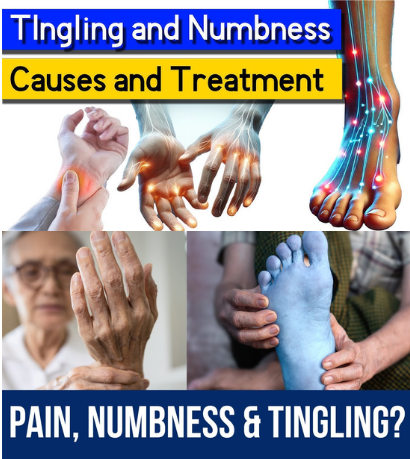
What Are Numbness and Tingling in Hands and Feet?
Numbness or tingling in the hands and feet is a symptom many people experience but often overlook. That prickly, pins-and-needles sensation can come and go or persist, affecting your daily activities. But why does it happen, and when should you be concerned? Let’s break it down in simple terms.
Common Causes of Numbness and Tingling
Numbness in the extremities can be caused by several factors, ranging from harmless to more serious medical conditions.
1. Nerve Compression or Damage
Ever fallen asleep on your arm and felt it “fall asleep”? That’s a temporary form of nerve compression. But persistent numbness may signal chronic issues like carpal tunnel syndrome, herniated discs, or peripheral neuropathy. Nerves are like highways; any blockage or pressure slows traffic and causes tingling sensations.
2. Circulation Problems
Poor blood flow can make your hands and feet feel numb. Conditions like peripheral artery disease, diabetes, or even sitting cross-legged for too long can restrict circulation. When blood doesn’t reach extremities efficiently, the nerves send warning signals in the form of tingling or numbness.
3. Vitamin Deficiencies
A lack of essential vitamins—especially B12—can harm nerve function. B12 helps maintain healthy nerve cells, and without enough, your body may struggle to transmit signals effectively, leading to numbness and tingling symptoms.
4. Chronic Illnesses and Medical Conditions
Diabetes, multiple sclerosis, or thyroid disorders can all contribute to persistent numbness. In these cases, tingling isn’t just an annoyance—it’s a signal that your body needs attention.
Video : Arm and Hand Numbness and Tingling Explained
Symptoms That Shouldn’t Be Ignored
Numbness and tingling aren’t always harmless. Watch out for:
- Persistent numbness in hands or feet
- Weakness or difficulty gripping objects
- Painful or burning sensations
- Sudden onset alongside dizziness, facial drooping, or difficulty speaking
These could indicate serious conditions like a stroke or severe nerve damage.
Lifestyle Factors That Can Trigger Numbness and Tingling
Certain habits make tingling worse. Poor posture, prolonged sitting, wearing tight shoes, or repetitive hand movements (typing, texting, gaming) can contribute. Stress and lack of sleep may also exacerbate nerve sensitivity, making numbness more noticeable.
Simple Home Remedies and Preventive Measures
While some causes require medical intervention, there are practical ways to ease mild symptoms:
- Stretching and Exercise: Regular movement improves circulation and relieves nerve compression.
- Proper Posture: Avoid slouching at your desk; keep wrists and legs in neutral positions.
- Balanced Diet: Ensure sufficient intake of B vitamins, magnesium, and omega-3 fatty acids.
- Ergonomic Adjustments: Use wrist supports, cushioned chairs, and comfortable shoes.
- Stress Management: Meditation, deep breathing, or yoga can reduce nerve sensitivity.
When to Seek Professional Help
If numbness and tingling persist for weeks, worsen, or come with other alarming symptoms like weakness or severe pain, consult a healthcare professional. Early diagnosis can prevent permanent nerve damage and improve your quality of life.
The Connection Between Numbness and Overall Health
Numbness and tingling might seem minor, but they often signal underlying health issues. Treating these symptoms isn’t just about comfort; it’s about identifying circulation issues, nerve damage, or vitamin deficiencies early. Think of it as your body’s way of waving a little red flag: pay attention before a small problem becomes serious.
Video : Hand Numbness & Tingling: Diagnosis & Treatment
Conclusion
Numbness and tingling in your hands and feet may start as a minor inconvenience, but ignoring them could have consequences. Understanding the causes, monitoring symptoms, and making simple lifestyle adjustments can significantly improve your comfort and health. Don’t wait until numbness becomes debilitating—listen to your body, take preventive steps, and consult a professional when needed.


